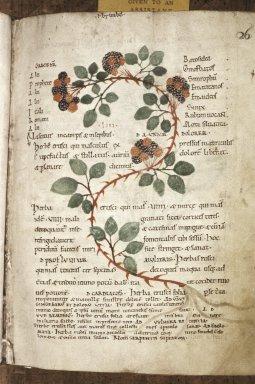Botanical Ontologies

Botanical Ontologies: A cross-disciplinary forum on human-plant relationships
May 16-17, 2014
Radcliffe Humanities Building, Oxford
Ontologies of plant/ecological knowledge stretch from Linnaean taxonomic designations to indigenous origin myths, yet regardless of origin they structure the relationships between plants and humans. The construction of these knowledge systems is increasingly of interest across the social sciences, biological sciences and humanities, but are often observed and studied from the isolated perspective of just one particular culture or disciplinary perspective. In order to remedy this we are pleased to announce a two-day interdisciplinary post-graduate conference to be held at the University of Oxford on 16-17 May 2014, sponsored by The Oxford Research Centre in the Humanities (TORCH). The conference will consider the relationships between plants and humans, how they’re constituted and negotiated, bringing together perspectives from Anthropology, Archaeology, Biology, Conservation and International Development, Geography, Heritage Management, History, and Plant Sciences to answer the fundamental question: How do we know what we know about plants?
Call for papers
Abstracts of 300 words (max.) for 20 minute oral, or poster, presentation on any of the four themes outlined below are invited from postgraduate students in any field concerned with plant knowledge and its production. Postgraduates, undergraduates, post-doctoral and early career researchers, as well as more senior academics are welcome to attend the conference. The deadline for submission of abstracts will be 28th February 2014 and abstracts should be emailed to botanical.ontologies@gmail.com
Sessions/Themes
1. The Formation and Transmission of Plant Knowledge: How is knowledge about plants constructed and transmitted?We invite contributions on what anthropological, archaeological, historical, philosophical, biological, and chemical evidence can bring to the discussion of the origins of people’s botanical knowledge, how this comes to structure their relations with plants, and how these ontologies change over time.
2. Ideas Made Material: Applying Plant Knowledge: What can local plant knowledge contribute to the creation ofconservation, biodiversity, and heritage management programs? How can knowledge about useful plants be used while safeguarding plants/plant components from becoming primary targets for biopiracy? Case studies that address the politics and policies surrounding plant knowledge acquisition, application, and loss are welcome.
3. Ethno-Bio-Chemical Perspectives: Plant-initiated Impacts on Humans: New insights from chemistry, plant sciences,and the social sciences increasingly challenge anthropocentric perspectives on plants and highlight the role of plants and plant communities in structuring plant-human relationships. This panel invites papers that discuss the challenges, possibilities, and radical new ideas brought about by new methodological and theoretical perspectives on human-plant relationships.
4. Rethinking plants & people: Towards a new understanding of “botanical ontologies”: Although many preservationprograms are aimed at recording and preserving the Traditional Ecological Knowledge (TEK) of non-Western societies, the loss of plant knowledge is a matter of global concern. What can we do to stem this loss? Can “lost” botanical ontologies be recovered, and if so, how? Should/can we create “new” ontologies for the 21st century, and if so, how would these look? Case studies are invited to explore practical approaches to the preservation of TEK in multiple environments (i.e. primary/secondary schools, botanical gardens, and ethnographic museums) and as well as new methodological and theoretical perspectives on the acquisition, formation, and meaning of plant knowledge.
Student Bursaries: A number of travel bursaries are available to student presenters. If interested please enquire when submitting your abstract.
Further details of the conference (including registration and confirmation of plenary speakers) are available at the conference website: www.botanicalontologies.wordpress.com


